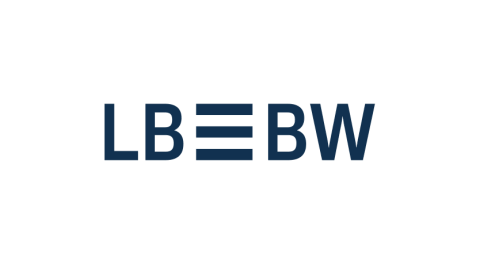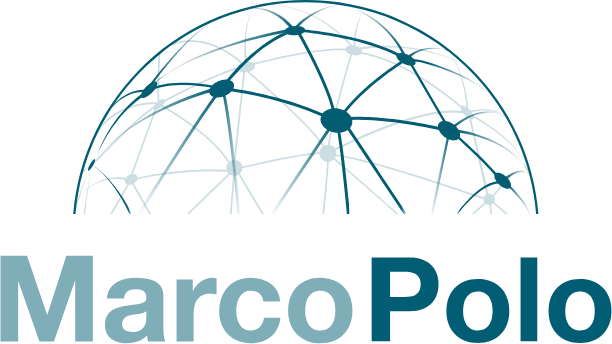Commercial transactions executed via the Marco Polo trade finance network based on blockchain technology.
Commerzbank and LBBW are pioneering with Voith and KSB in the digital transformation of trade finance solutions
LBBW and Commerzbank together have reached a milestone in the digitisation of commercial transactions based on distributed ledger technology (DLT). In order to secure payments from two commercial transactions, the necessary data transfer between Voith and KSB was for the first time ever carried out digitally and processed using the trade finance network Marco Polo on R3’s Corda blockchain platform.
As part of a pilot project, two commercial transactions between the international technology group Voith, and the leading pump and valve manufacturer KSB SE were mapped for the first time ever using blockchain technology. One transaction involved the delivery of special hydraulic couplings from Germany to China and the other the delivery of pumps within Germany.
In the transactions, order and delivery details were agreed between the companies via the Marco Polo network and the payment term was secured by a conditional payment commitment from the buyer’s bank. After delivery, the corresponding delivery details were entered into the network and automatically matched with previously agreed data, triggering an irrevocable payment obligation on the part of the buyer’s bank. The overall flow of information was efficiently and transparently mapped by R3’s Corda blockchain platform.
The number of intermediaries involved and the large number of physical documents make securing payments of commercial transactions with traditional instruments highly complex and labor intensive. The DLT platform from Trade IX, the technology partner for the Marco Polo network, makes it possible to secure the transaction by a payment commitment through the digital exchange of trade data, which can also be financed on behalf of the supplier by the supplier’s bank. Financing was also part of the pilot transaction.
In the wake of the successful pilot project, the next step will focus on the complete execution of transactions via the Marco Polo network with a direct connection to the customers’ management systems (ERP integration) in order to offer customers a seamless process. In future, the network is planned to be expanded by further banks and participants from the transportation and insurance sectors so that the entire value chain for foreign trade transactions is represented digitally with data. Voith has long been committed to digital communication with banks in the trade finance sector. Both LBBW and Commerzbank are among the approximately 30 banks, which communicate with the multibank standard of SWIFT MT798. The use of DLT technology promises additional optimization potential, which should be exploited by companies. Voith has explored the market for current DLT technology solutions and, due to the architecture and variety of current and planned modules, decided to test Marco Polo and the underlying Corda technology as a first step. In doing so, Voith chose LBBW and Commerzbank as agile and active banks.

Gerald Böhm, head of Guarantees and Trade Finance at Voith, says: “Voith is always interested in innovative technology solutions in the field of finance. The cooperation with LBBW and Commerzbank offers us an opportunity to actively shape and incorporate the company’s perspective into the further development of the products on offer (here the payment commitment). Despite the elation surrounding the successful execution of the first two commercial transactions via the platform, a great deal of work still lies ahead. For example, in spite of the numerous advantages that are independent of the specific platform, standardised global governance must be established for the digital execution of commercial transactions.”
By participating in the project, KSB hopes to bring the conventional principles of trade finance into the digital future. “With Marco Polo we see an opportunity to take a significant step towards increased security, more efficiency and greater settlement speed in the area of payment processing. It is exciting to see state-of-the-art technologies such as distributed ledger being applied in an area as “outmoded” as trade finance. We would also like to take on a pioneering role in this area in cooperation with innovative partners such as Voith, Commerzbank and LBBW,” explains Ralf van Velzen, head of Export Financing at KSB SE & Co. KGaA.
As one of the founding banks of Marco Polo, Commerzbank recognised the potential of distributed ledger technology for the trade finance business early on and actively shaped it in various initiatives. At its DLT lab in the main incubator, the Group-wide research and development unit, Commerzbank is testing relevant prototypes in many business areas together with its clients and is working on new solutions for capital markets as well as trade finance. The creation of an international trade finance network such as Marco Polo is in parallel with the joint research initiative of Commerzbank and Fraunhofer Institute.

“We are very pleased to have successfully conducted the first trade finance pilot at Marco Polo. The transaction proves that blockchain technology offers our clients a payment undertaking and state-of-the-art financing for trade transactions with both foreign countries and domestically. We place particular emphasis on collaboration with experienced and interested corporate clients such as KSB and Voith as well as banks such as LBBW. We see a valuable opportunity here to work together to develop and bring to the market innovative trade finance solutions,” says Nikolaus Giesbert, divisional board member for Trade Finance & Cash Management at Commerzbank.
For LBBW, trade finance is the third area of application for distributed ledger technology after the Schuldschein and securitisation businesses. The bank’s approach in this regard is to test DLT on real transactions with tangible customer benefit. Because the success of new trade finance projects depends on the number of participating banks, last year LBBW became a founding member of Marco Polo, the fastest-growing trade finance network based on Corda blockchain technology. Dr Christian Ricken, member of the Board of Managing Directors of LBBW and head of the capital market business and asset management / international business, says: “With trade finance, we are tapping into a new area of application for distributed ledger technology from which our clients will derive extraordinary benefit. It will make transactions faster, easier and more secure. Not only are we breaking new ground in terms of technology, but also in the cooperation between banks and businesses. We launched this pilot project in conjunction with Commerzbank and our customers Voith and KSB and we now intend to develop the software in an open and agile exchange.”
About Commerzbank

Commerzbank is a leading international commercial bank with locations in just under 50 countries. In the two business segments Private and Small Business Customers, as well as Corporate Clients, the Bank offers a comprehensive portfolio of financial services which is precisely aligned to the needs of its clients. Commerzbank finances around 30% of Germany’s foreign trade and is leading in financing for corporate clients in Germany. Due to its in-depth sector know-how in the German business world, the Bank is also a leading provider of capital market products. Its subsidiaries comdirect in Germany and mBank in Poland are two of the world’s most innovative online banks. With approximately 1,000 branches, Commerzbank has one of the densest branch networks among German private banks. In total, the Bank serves more than 18 million private and small business customers, as well as more than 70,000 corporate clients, multinationals, financial service providers and institutional clients worldwide. In 2018, it generated gross revenues of €8.6 billion with approximately 49,000 employees.
About KSB
KSB is a leading supplier of pumps, valves and related support services. These come in a wide range of applications ranging from building services, industry and water transport to waste water treatment, power plant processes and solids transport. With production plants, sales offices and agents as well as service centres in more than 100 countries, KSB is always close to its customers. With a workforce of around 15,500, the KSB Group generated sales revenue of € 2.2 billion in 2017. The basis of the company’s success is an innovative technology based on its own research and development work. The activities of the KSB research centres concentrate on hydraulics, materials development and the automation of pumps and valves. Excellent efficiencies, energy-saving motors as well as equipment for the control and monitoring of system components ensure a high level of energy efficiency. With over 170 service centres and around 3,000 service employees, KSB provides inspection, maintenance and repair services worldwide. All-in service and operations management complete the service portfolio.
About LBBW
Landesbank Baden-Württemberg (LBBW) is both a medium-sized universal bank and the central bank of the savings banks in Baden-Württemberg, Saxony and Rhineland-Palatinate. With total assets of EUR 241 billion and around 10,000 employees (as of 31 Dec. 2018), LBBW is one of the largest banks in Germany. Its core activities are the business with corporate customers, in particular small and medium-sized enterprises and the private customer business, as well as savings banks. A further focus is placed on real-estate financing as well as the customer-oriented capital market business with banks, savings banks and institutional investors.
About Voith Group
The Voith Group is a global technology company. With its broad portfolio of systems, products, services and digital applications, Voith sets standards in the markets of energy, oil & gas, paper, raw materials and transport & automotive. Founded in 1867, the company today has more than 19,000 employees, sales of € 4.2 billion and locations in over 60 countries worldwide and is thus one of the large family-owned companies in Europe.





















